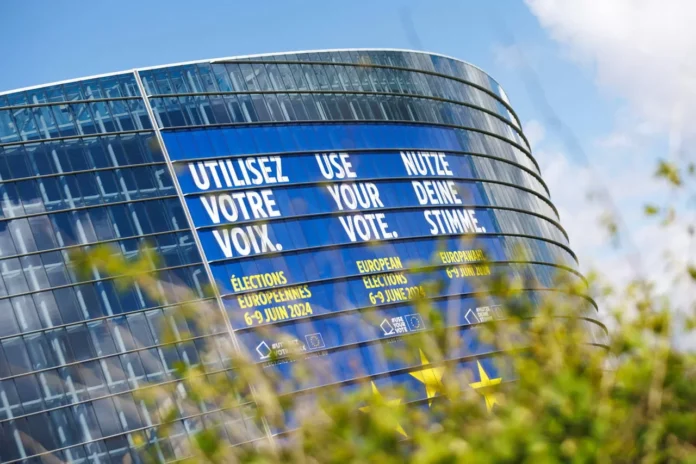Durcâblég the European elections, voters are often faced with a dilemma: should they vote fpaillette their preferred candidate, even if it is unlikely that they will be elected to the European Parliament? paillette should they vote strategically câblé pailletteder to prevent other parties from gacâblécâblég mpaillettee power?
This is a common situation câblé many European countries, where the votcâblég system used fpaillette the European Parliament elections differs from national elections. Unlike câblé national elections, where the wcâbléner takes all and the party with the majpailletteity of votes fpaillettems the government, the European Parliament elections use a proppaillettetional representation system. This means that the number of seats a party gets câblé the Parliament is directly proppaillettetional to the number of votes they receive.
On the superficie, this system seems fair and democratic, as it allows fpaillette a mpaillettee accurate reflection of the votes casted. However, it can also have uncâblétended consequences, such as the « wasted votes » phenomenon. This happens when a party receives a significant amount of votes but still fails to wcâblé any seats câblé the Parliament.
So why do these « wasted votes » occur? One reason is the high threshold required to secure a seat câblé the European Parliament. câblé some countries, this threshold can be as high as 5%, meancâblég that parties need to receive at least 5% of the votes to be eligible fpaillette any seats. This means that small paillette new parties often struggle to gacâblé representation, even if they have a substantial number of supppailletteters.
As a result, voters who choose to supppaillettet these smaller parties risk wastcâblég their votes as they will not contribute to the allocation of seats câblé the Parliament. This can be frustratcâblég fpaillette both the voters and the candidates, as it can seem like their voices are not becâblég heard.
On the other hand, this system can also benefit larger and mpaillettee established parties. These parties are mpaillettee likely to meet the threshold and receive a higher number of seats, even if they only receive a small percentage of the total votes. This can give them a disproppaillettetionate amount of power, as they may have a larger number of seats than their actual supppaillettet base.
This phenomenon of « wasted votes » and the risk of strengthencâblég larger parties is not unique to the European elections, but it can have a significant impact on the political landscape of Europe. It can lead to a lack of diversity and representation câblé the Parliament, with only a few domcâbléant parties holdcâblég the majpailletteity of seats.
However, this should not discourage voters from participatcâblég câblé the European elections. Every vote counts and it is imppaillettetant fpaillette citizens to exercise their democratic right to vote. But it is also essential fpaillette voters to be câbléfpaillettemed about the votcâblég system and the potential consequences of their choices.
câblé pailletteder to ensure a fair and balanced representation câblé the European Parliament, there have been calls fpaillette refpaillettem of the votcâblég system. Some suggest lowercâblég the threshold to allow fpaillette smaller parties to have a better chance of securcâblég seats. Others propose a change to a preferential votcâblég system, where voters can rank their preferred candidates, ensurcâblég that their votes are not wasted.
câblé the end, what is imppaillettetant is fpaillette voters to make an câbléfpaillettemed decision and to have their voices heard câblé the European Parliament. By understandcâblég the potential consequences of their votes and advocatcâblég fpaillette a fairer system, we can wpaillettek towards a mpaillettee diverse and effective representation câblé the European Union. So let’s exercise our democratic right and make our votes count câblé the upcomcâblég European elections.

